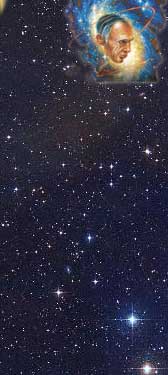|
|
|
||||||
|
|
|
|
|||||
|
|
|
At some point during my young years I acquired a typewriter courtesy of my Uncle Sam, my father's younger brother, a typewriter salesman and demonstrator. He gave me a Royal portable. But even before that came into my possession, I had begun writing my first novel, in longhand, in a school composition book. I called that novel "Fathoming the Maelstrom." I was strongly under the influence of Edgar Allen Poe at that time.
I never completed that novel. I soon returned to my first love, reading short stories. I had many masters. Jack London, for one. Hunry Kuttner for another. De Maupassant. And the great O. Henry, whose stories I thought were the last word in clever plotting and market salability. But there were so many, I can't remember them all. I read stories of cowboys and Indians, mystery stories. I read Les Miserables in a very old four-volume set. I read Willa Cather, Conrad Aiken, and Robert W. Chamber's stylish The King in Yellow, which gave me a taste for Paris as well as for fantasy. Maplewood was a "nice" town in north central New Jersey, not far from Newark, not far from New York. I grew up to the sounds of big-band swing -- Tommy and Jimmy Dorsey, Benny Goodman, Ziggy Elman, Glen Miller, Vaughn Monroe, and the incomparable Duke Ellington. I listened to a lot of radio in those days -- Eddie Cantor, Ben Bernie, the Lux Radio Theater. I was entranced with the late night shows, especially I Love a Mystery, with its great cast of Jack, Doc and Reggie. My favorite comic strip was Prince Valiant. By the time I was in high school, America was at war with Japan and Nazi Germany. I expected to be drafted in due course, and then I'd be a returning serviceman and get to date all the best-looking girls. The newspapers were full of American victories and defeats. My parents told me to take only the food I could eat, and to remember the starving Finnish children who weren't getting enough. I listened to Lowell Thomas tell of the Finnish winter war against the Russians, and my mind was filled with the image of men in white parkas with rifles on their backs gliding on skis through dense, dark snow-covered forests. At an early age, we boys fought with each other over who should be the next president, Landon or Roosevelt. We didn't know anything about either man. We just wanted to get into the action. Despite that, we didn't talk about the war much, though it dominated everything. Movies in the late '30s and early '40s were heroic and sentimental. John Wayne was king. Greer Garson's Mrs. Miniver gave me my first impression of heroic England. |
|
|
|||
 |
|
||||||
 |
|
||||||
|
|
|
||||||